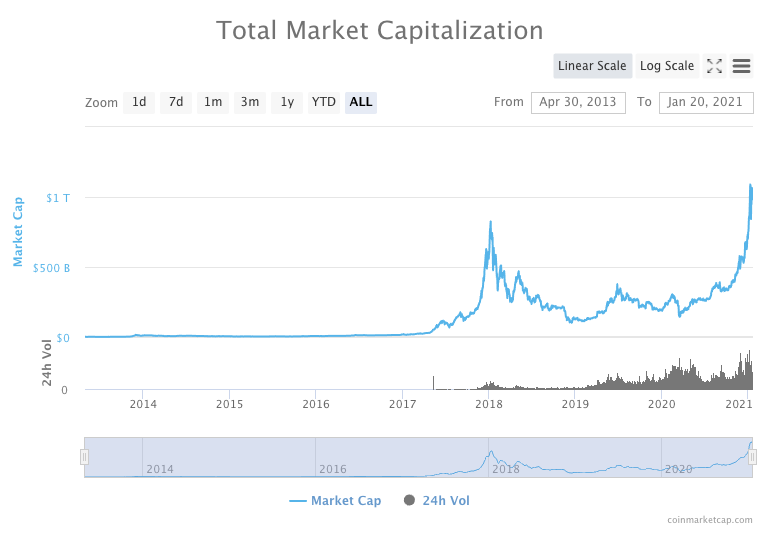
One of the more fascinating phenomena is people who think they understand economics that have never built a two-sided marketplace, coded a financial instrument, issued a digital currency, started a company, managed a cap table, met a payroll, or created a single job.
Cryptoeconomics is about reproducible experiments. You can actually issue a currency, set a monetary policy, get opt-in participants, and test your theories in practice.
The proof is in the pudding. And the pudding is worth hundreds of billions of dollars.
The proof is in the pudding. And the pudding is worth hundreds of billions of dollars.

Not disjoint at all.
Microeconomics is the theory of individuals & firms. Directly related to running a business.
Macroeconomics until recently was off-limits to experiment. But now anyone can create a currency, set monetary policy, and see what happens.
Microeconomics is the theory of individuals & firms. Directly related to running a business.
Macroeconomics until recently was off-limits to experiment. But now anyone can create a currency, set monetary policy, and see what happens.
https://twitter.com/besttrousers/status/1351580765927124995
Perhaps the closest thing to experimental macroeconomics prior to crypto was the experience of setting up & scaling massive two-sided marketplaces like Airbnb, eBay, Google Ads, etc.
You quickly learn that ideology is a poor guide. Naive libertarianism & progressivism both fail.
You quickly learn that ideology is a poor guide. Naive libertarianism & progressivism both fail.
Why do both these ideologies (and others) fail?
Basically, people want to make money on those platforms. They absolutely do respond to incentives.
But the marketplace operator has immense power to shape incentives for good or ill. A fully decentralized order does *not* obtain.
Basically, people want to make money on those platforms. They absolutely do respond to incentives.
But the marketplace operator has immense power to shape incentives for good or ill. A fully decentralized order does *not* obtain.
Another major area of experimental macroeconomics prior to cryptoeconomics was the virtual economies work by Edward Castronova et al, studying World of Warcraft and the like. A good read for crypto people.
mitpress.mit.edu/books/virtual-…
mitpress.mit.edu/books/virtual-…
Some of the best young academic economists have been studying crypto from this perspective, like @ccatalini and @Susan_Athey. The field is moving fast enough that journal papers are old by the time they're out, but the idea of "opt-in experimental macroeconomics" is powerful. 



See also this thread. I should note that the original tweet applies to ideologues of *all* political persuasions. Sometimes central planning works, given a competent enough central planner. Pragmatism and experiment over ideology and theory.
https://twitter.com/balajis/status/1351589299204997120
• • •
Missing some Tweet in this thread? You can try to
force a refresh






